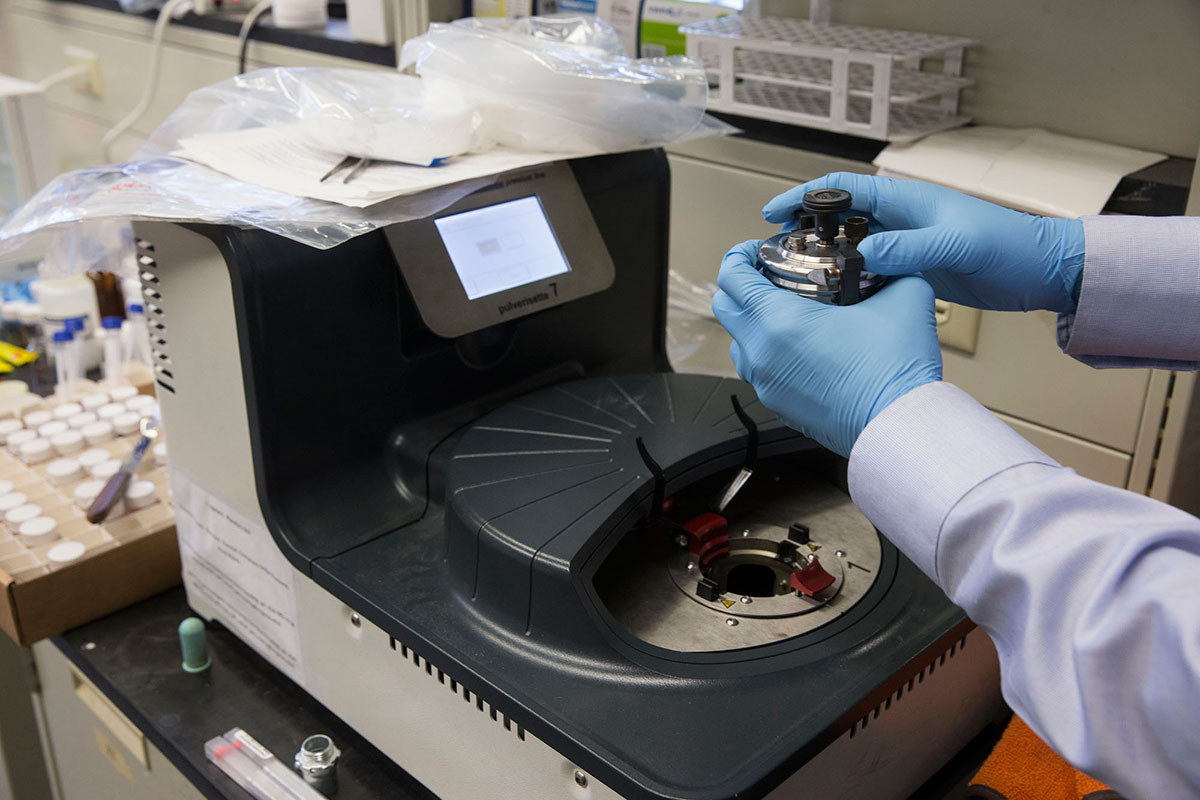University of Virginia associate architecture professor Earl Mark was disheartened by the magnitude of Europe’s refugee crisis, which he witnessed firsthand when traveling by rail from Budapest, Hungary to Vienna, Austria for a fall conference. Now, thanks to UVA’s participation in a statewide research partnership, Mark is doing something about it.
Mark is one of six UVA faculty members receiving grants from the 4-VA program, a partnership between UVA, George Mason University, James Madison University, Virginia Tech and Old Dominion University. Funded by the state legislature, 4-VA promotes inter-university collaboration to improve research, teaching and job opportunities in the commonwealth, with a focus on STEM – science, technology, engineering and mathematics – efforts. Many research projects funded by 4-VA involve graduate and undergraduate students, providing experiential learning opportunities valuable in the job market.
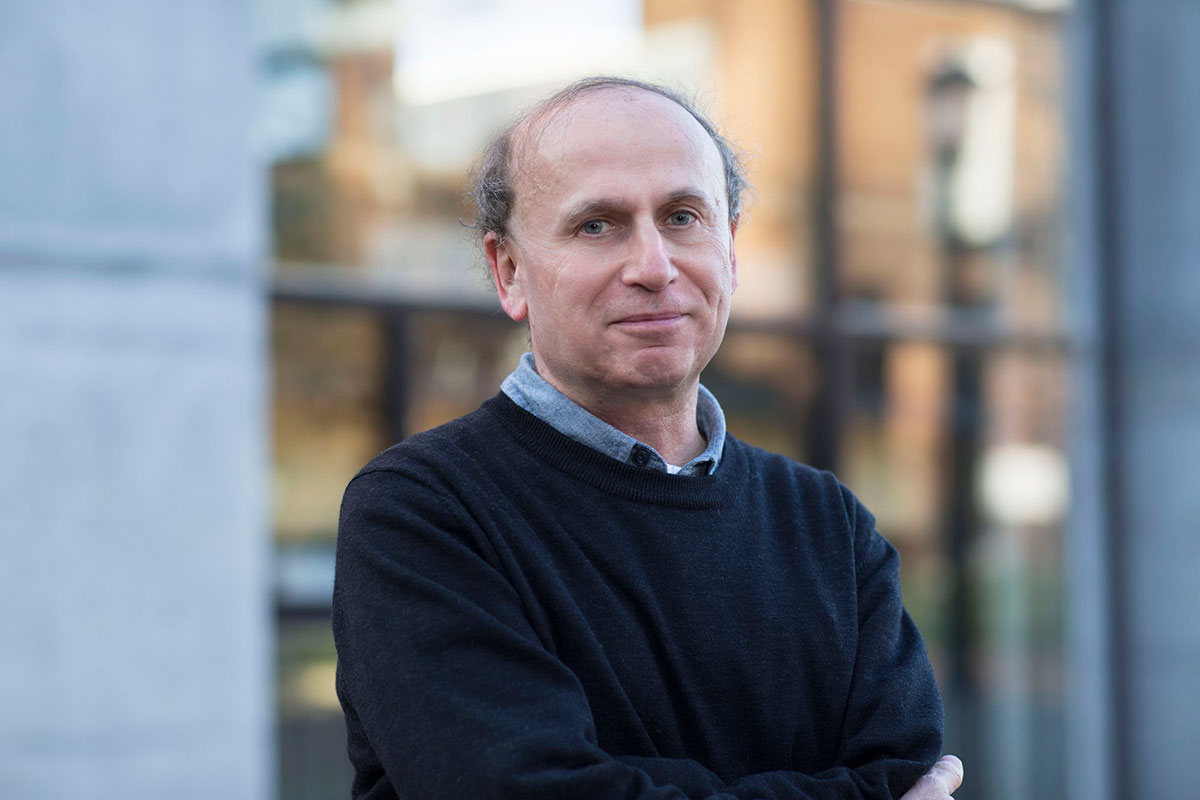
Associate architecture professor Earl Mark and his team received a 4-VA grant to prototype more durable, cost-effective and easily assembled emergency shelters using high-tech tension membrane fabric. (Photo by Dan Addison)
“In Europe, seeing families and kids huddled together in train stations, corridors and any available shelter was just overwhelming, and I became much more engaged in thinking about how my work with tension membrane fabric could impact emergency relief housing,” Mark said.
The team combines Mark’s long-standing work designing environmentally responsive, small-scale tension membrane fabric lodging and labs, Bart-Smith’s experience with tension structures and Martin’s work on fabrics that have electronics woven into them.
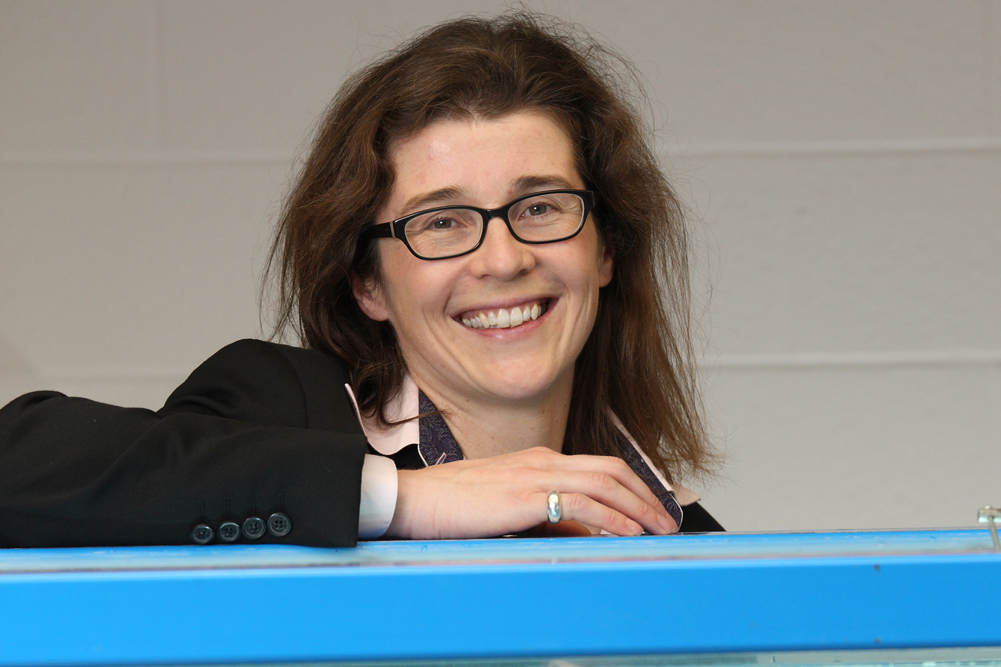
UVA engineering professor Hilary Bart-Smith is part of a team developing emergency shelters using tension membrane fabric.
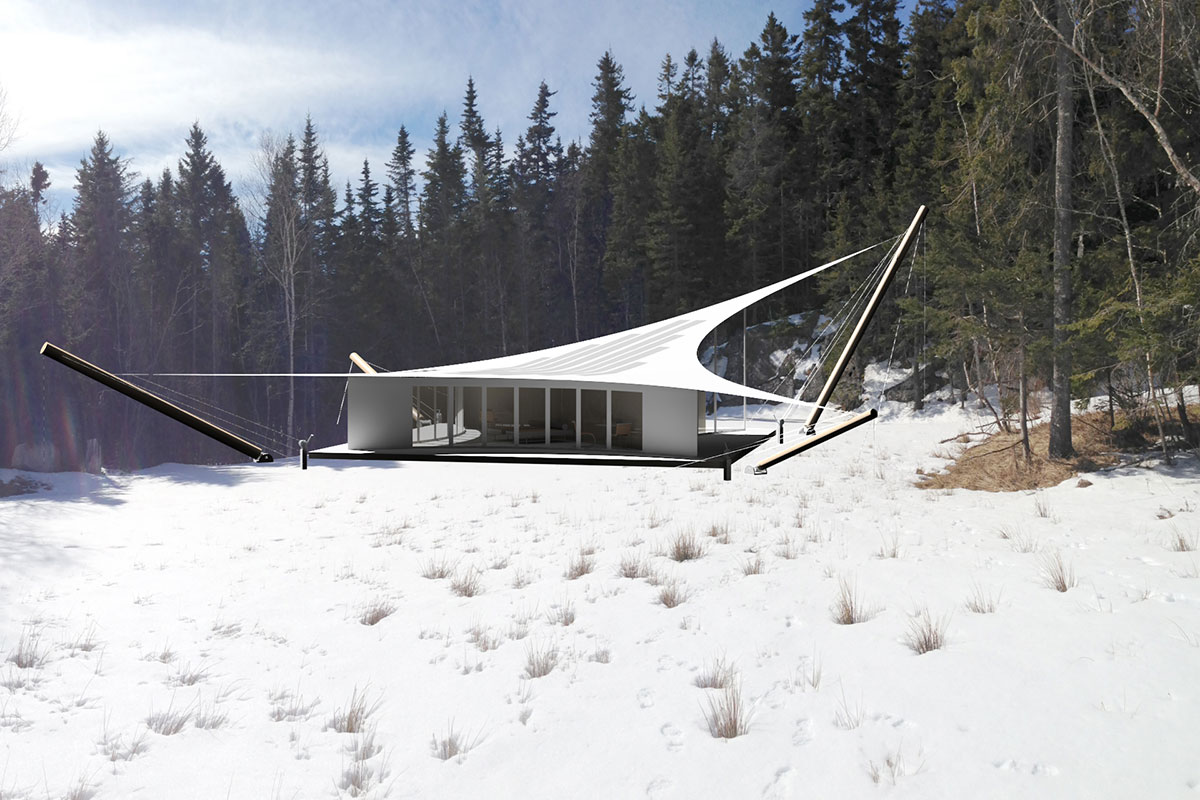
Mark and his team hope to create more effective emergency shelters using tension membrane fabric, shown here in a study model of a collapsible building that Mark designed for Acadia National Park in Maine. (Image: Earl Mark)
“The whole idea of 4-VA is to help institutions in the commonwealth leverage their strengths,” said Vice Provost for Educational Innovation and Interdisciplinary Studies Archie Holmes, who oversaw UVA’s participation this year. “One of the strengths that UVA provides, as a large research university, is the ability to build the research capacity of the commonwealth.”
The applicants for each project funded this year outlined possibilities for national recognition. For example, Gary Koenig, an assistant professor of chemical engineering at UVA, and Dipankar Ghosh, an assistant professor of mechanical and aerospace engineering at Old Dominion University, hope to submit their project to the Department of Energy or the Department of Defense. Along with their graduate students, the pair are working to improve energy storage in batteries, combining Koenig’s expertise in battery material design with a new freeze-casting technique developed in Ghosh’s lab to create high-power solid-state batteries.
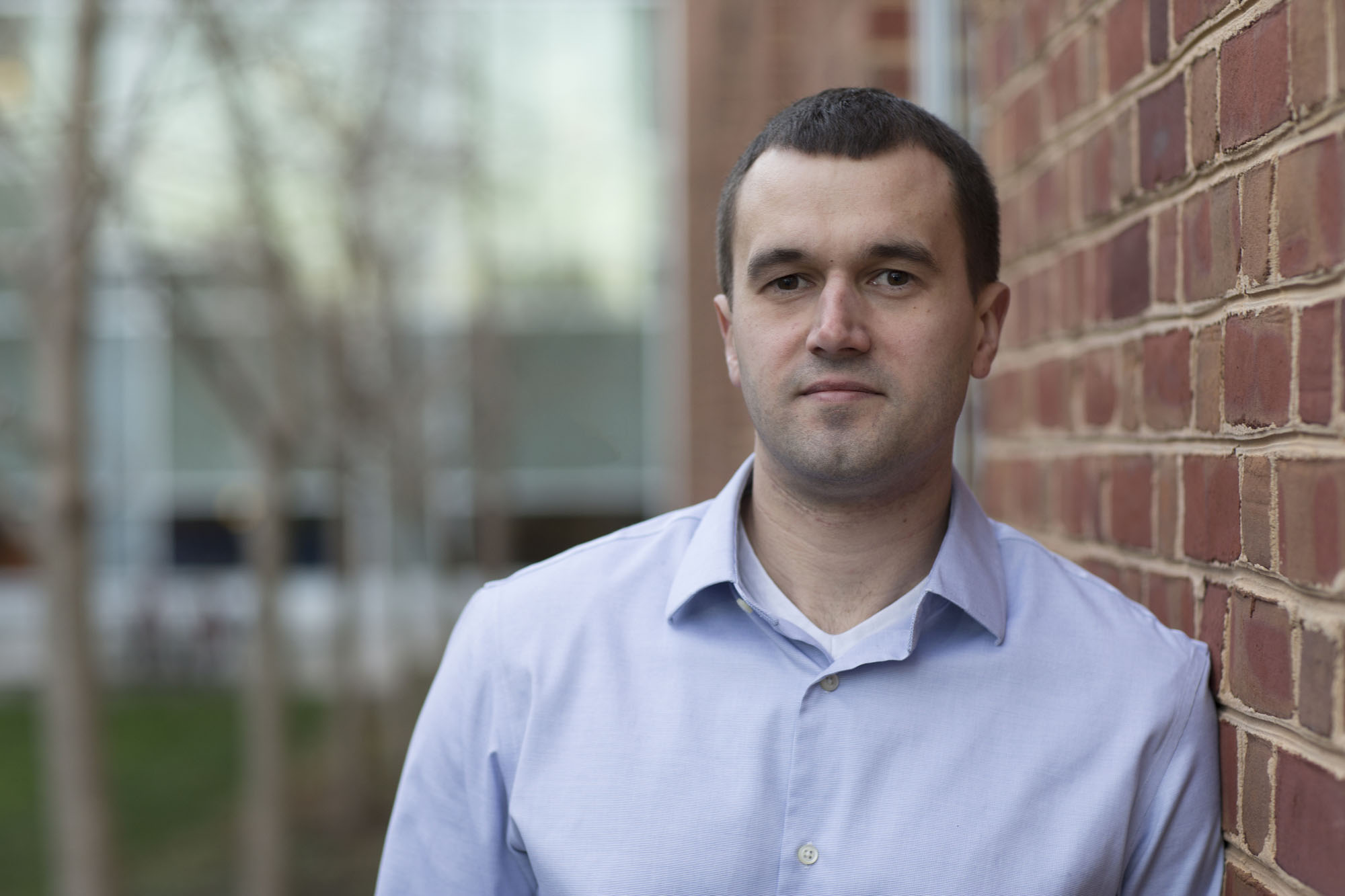
Gary Koenig, an assistant professor of chemical engineering at UVA, is collaborating with a colleague at Old Dominion University using a 4-VA grant.
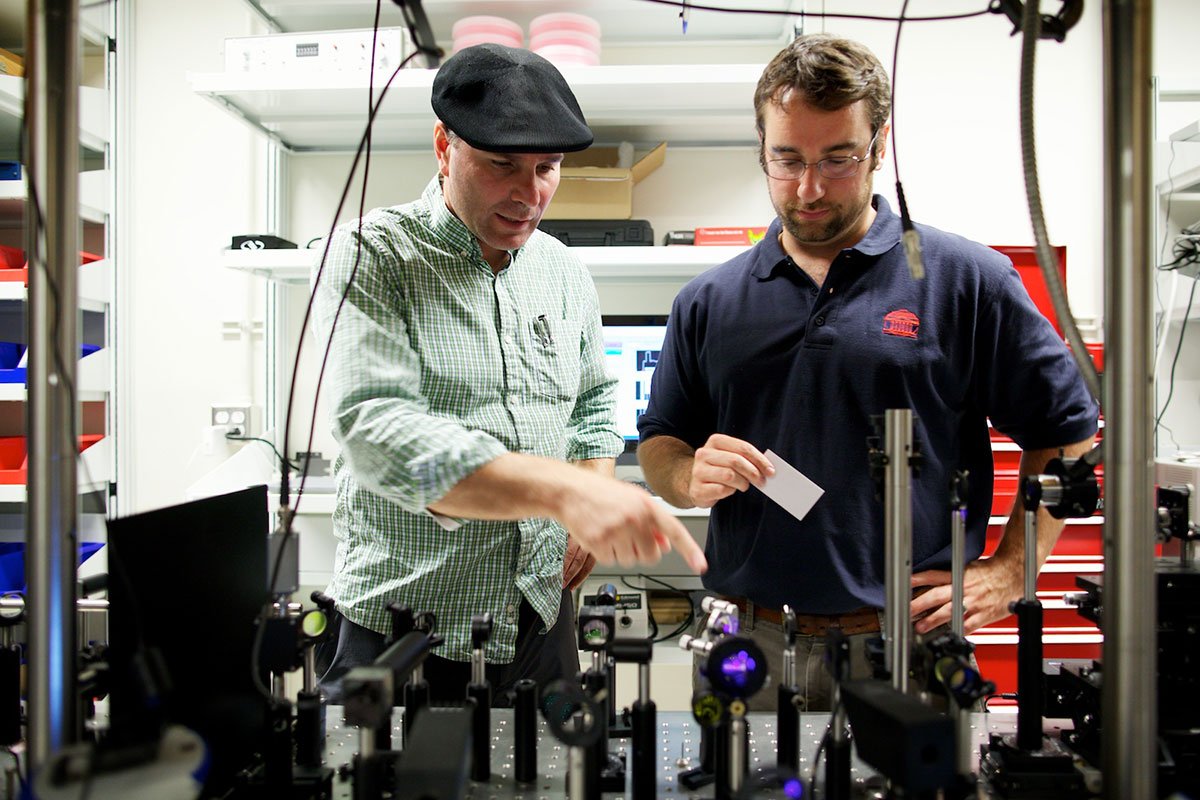
Costel Constantin, left, and Patrick Hopkins, right, used a 2013 4-VA grant to study heat transfer at the nanoscale, hoping to improve the functionality of nanodevices. (Photo: Costel Constantin)
“We are taking fundamentally good ideas and giving them a boost to get to the next stage of research, so that they can be competitive for national awards,” Holmes said.
Though UVA has participated in the 4-VA program since its founding six years ago, this is the first year that the University administered its own grant competition. Proposals were solicited and reviewed by the Office of the Vice President for Research, and about $300,000 in funding was awarded.
Collaborations that received grants from UVA include:
- “Teen Driver Safety” – Dr. Daniel Cox, professor of psychiatric and internal medicine, collaborating with colleagues at the Virginia Tech Transportation Institute
- “High-Density Li Battery Cathodes via Freeze-Casting” – Gary Koenig, assistant professor of chemical engineering, collaborating with colleagues at Old Dominion University
- “Shelter-in-Place Structures” – Earl Mark, associate professor of architecture, collaborating with colleagues at UVA and Virginia Tech
- “Gel Materials for Pelvic Brachytherapy” – Dr. Timothy Showalter, associate professor of radiation oncology, collaborating with colleagues at Virginia Tech
- “History of Nursing in Alaska” – Arlene Keeling, Centennial Distinguished Professor of Nursing, collaborating with colleagues at James Madison University
- “Pathogenic Bacteria in a Pristine Ecosystem” – Michael Pace, professor of environmental science, collaborating with colleagues at James Madison University
Media Contact
Article Information
January 13, 2016
/content/refugee-shelters-batteries-new-grants-advance-promising-research

